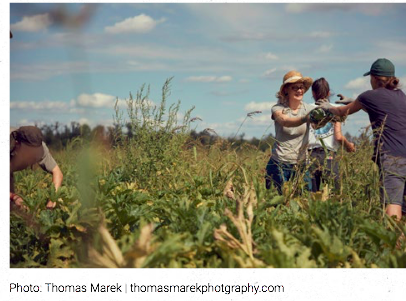In May 2013, the EU Commission published the draft for regulation of marketing and propagating the seed material. The writers’ aim was to prioritize increased productivity and intensify industrial-ized, export-oriented agriculture. It threatened rare varieties of vegetables, grains and fruit as well as rare breeds of animals.
Seed diversity and agrobiodiversity must be fully legally recognized and free of any restrictions! So the campaign against the proposed law began. All over Europe about 900,000 people signed petitions. In Austria, the petition called “Freedom for Diversity” was signed by 500,000 people within a year. Thousands of people sent e-mails and self-selected seeds to members of the EU Parliament to express their wish for the protection of diversity. On 11 March 2014, the European Parliament rejected the proposed draft. Humans and nature need diversity. Especially in times of climate change, we need resilient plants that are able to adapt to extreme conditions.8 The struggle continues essentially through the UN Convention on Biodiversity.
SUCCESSFUL EVENTS: THE NYÉLÉNI FOOD SOVEREIGNTY FORUMS
The struggle for Food Sovereignty cannot be imagined without the sharing of knowledge, meetings and networking. The first Nyéléni Forum took place in Mali in 2007. It brought together global leaders and actors from all the different constituencies of the Food Sovereignty movement. The first Nyéléni Europe Forum took place in Krems in Austria in August 2011. The second was held in Cluj-Napoca in Romania in October 2016. Both events brought many hundreds of activists from across Europe together. Another good example at national level is the second Forum of Food Sovereignty that was held in Warsaw in January 2020. It was organized by Nyéléni Poland with the support of several other groups. It was a gathering of activists, scholars, farmers and educators to discuss Food Sovereignty in the world, with special attention paid to the Polish case.


